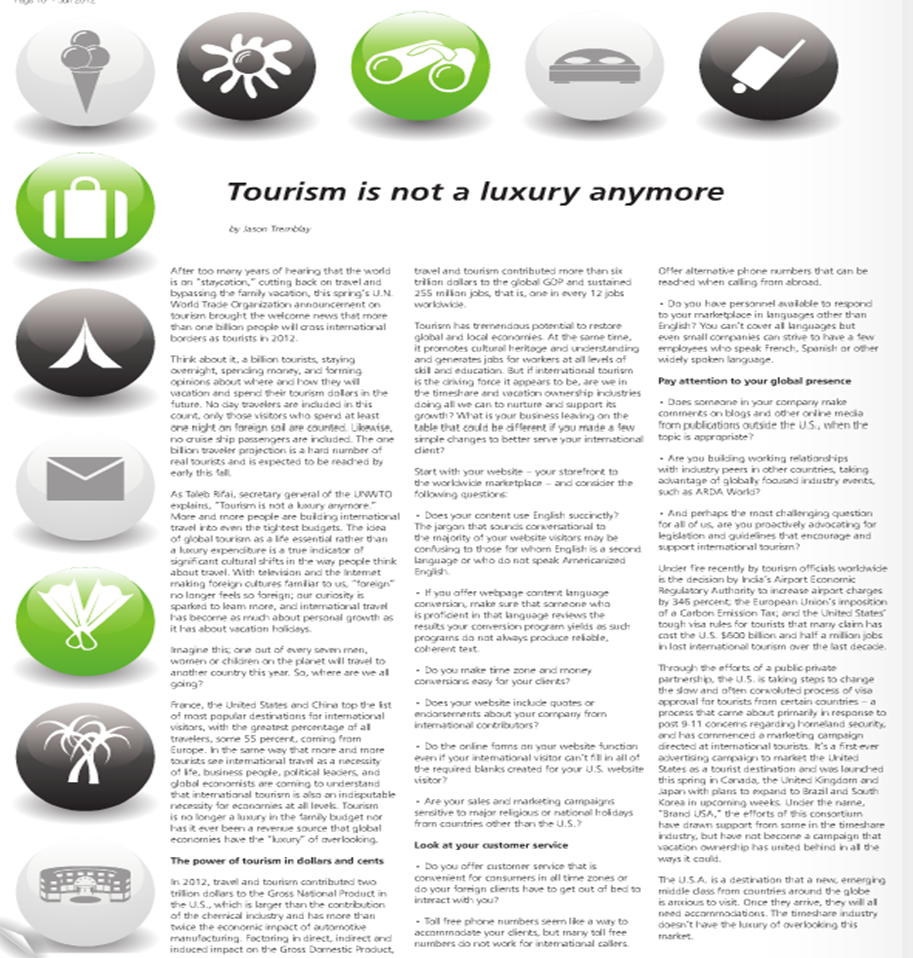7 (More) Terms Used When You Sell, Rent, or Buy a Timeshare: Part II
Thursday, May 30, 2013

Yesterday we looked at 7 words with which consumers may not be familiar but that crop up when they sell, rent, or buy a timeshare. Some of the words we defined are used in other industries or other types of real estate transactions. Others are specific only to timeshare and vacation ownership.
Here are a few more to add to the list:
- Biennial timeshare ownership: When you own timeshare use in alternate years (every other year), you own biennial ownership.
- Developer’s price: This is the full sale price when you buy a timeshare from a developer. It is marked up to include a percentage of marketing, advertising, and sales costs by the timeshare developer, including the cost of presenting to prospects who accept timeshare vacations or other “gifts”, attend a presentation, but never buy. In contrast, the price to buy a timeshare on the resale market is the true market value—the price consumers are willing to pay—without the mark up a timeshare developer adds to the sales price of a timeshare.
- Mini vac: Although this sounds like a tool for cleaning your car, it is actually an industry specific term used to describe the practice of gifting a prospect with a mini vacation in return for his or her attendance at a timeshare sales presentation. In reality, the cost of this gift is factored into the price of all timeshares a developer sells.
- Sinking fund: This is a portion of the timeshare management fee that is allocated to all portions of a timeshare property to ensure that the resort property maintains its “like new” condition throughout an owners period of ownership.
- Space bank or space banking: When you save or carry over the use of your timeshare from one year to another, you have space banked your timeshare. This typically applies to the practice of “depositing” the use of your timeshare with a timeshare exchange company, with intent to use a different (but comparable) timeshare at some date in the future. Space banking is not a guaranteed right of timeshare but varies by your terms of ownership, resort policy, and timeshare exchange company guidelines.
- Trading power: The value of your unit, interval, or points as a timeshare exchange is your “trading power.” This value may be set by the resort, but is in fact driven by demand for a specific resort, unit type, or season.
- Week 53: Approximately once every seven years, the days of the week fall in such a way as to create 53 weeks within a year. Week 53 is almost exclusively held by a resort for maintenance use; in fact, most timeshares are not sold in 52 weeks of ownership either, as time is necessary each year for repairs, renovation or refurbishing of each unit.
Hopefully, timeshare and vacation ownership as a whole is getting away from the practice of using language that is not commonly understood. The more user friendly we can make timeshare, the more responsive the market and prospective market is likely to be.
Be sure to check yesterday’s The Timeshare Authority blog for Part I of 7 Terms Used When You Sell, Rent, or Buy a Timeshare. You’ll find more timeshare industry definitions on our Sell My Timeshare NOW website under the Timeshare Glossary.





